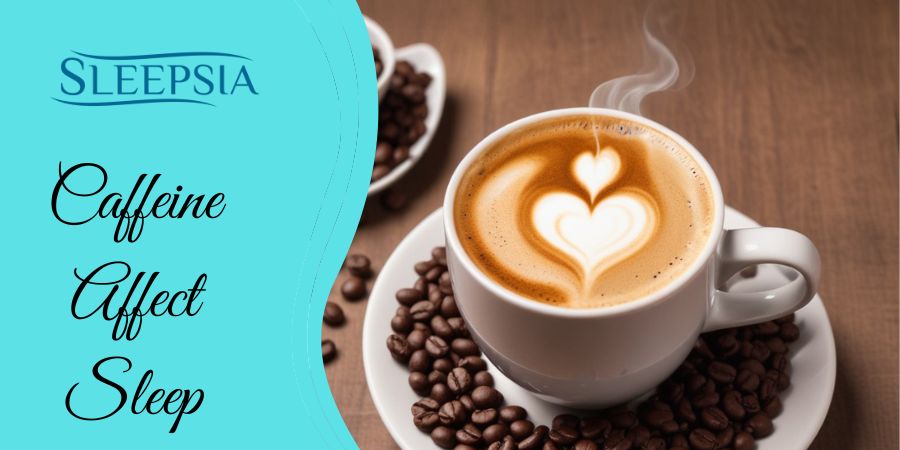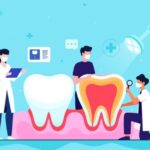
How Can Caffeine Affect Your Sleep?
Are you someone who can’t start their day without a cup of coffee or tea? Well, you’re not alone! Caffeine is the go-to fuel for many people to kickstart their mornings or power through the afternoon slump. But have you ever stopped to think about how that caffeine fix might be impacting your precious sleep quality? Let’s dive into the fascinating world of how caffeine can affect your much-needed rest and explore some tips on finding that perfect balance between energy boost and a good night’s sleep.
What Is Caffeine And How Does It Affect The Body?
Caffeine is a natural stimulant found in coffee, tea, chocolate, and energy drinks. When consumed, it quickly enters the bloodstream and travels to the brain. Once there, caffeine blocks the neurotransmitter adenosine – responsible for promoting sleepiness – leading to increased alertness and energy levels.
The effects of caffeine on sleep can vary from person to person based on factors like tolerance levels, metabolism, and overall health. Some individuals may feel jittery or anxious with even small amounts of caffeine, while others can handle multiple cups without any noticeable impact.
Interestingly, caffeine’s half-life (the time it takes for your body to eliminate half of it) ranges from 3 to 5 hours but can be longer in some cases. This means that even that late-afternoon pick-me-up could still be affecting your ability to fall asleep at night.
Understanding how caffeine interacts with your unique body chemistry is key in managing its potential impact on your sleep patterns. So next time you reach for that extra shot of espresso or late-night soda refill, remember that moderation might just be the secret ingredient to a restful night’s sleep.
The Link Between Caffeine Consumption And Sleep Quality
Many of us turn to caffeine to kickstart our mornings or power through the midday slump. However, what we might not realize is that our beloved cup of coffee could be impacting the quality of our sleep.
Caffeine works by blocking adenosine receptors in the brain, which are responsible for promoting relaxation and drowsiness. By interfering with this process, caffeine can make it harder for us to fall asleep and stay asleep throughout the night.
Studies have shown a clear link between high caffeine consumption and poor sleep quality. People who consume large amounts of caffeine tend to experience more fragmented sleep, reduced overall sleep time, and lower sleep efficiency compared to those who limit their intake.
It’s important to be mindful of how much caffeine we’re consuming and when we’re consuming it, especially if we want to prioritize getting restful and rejuvenating sleep each night.
Also Read:- Effect of caffeine and allergies on sleep
Effects Of Caffeine On Different Types Of Sleep
Caffeine can impact both the quantity and quality of your sleep in various ways. When consumed close to bedtime, caffeine can disrupt your ability to fall asleep quickly. This delay in falling asleep may lead to a decrease in overall sleep duration, affecting your restorative deep sleep cycles.
Moreover, caffeine can interfere with REM (rapid eye movement) sleep, the stage where most dreaming occurs. Disrupted REM sleep can result in grogginess and impaired cognitive function the next day. It’s essential to be mindful of how much caffeine you consume throughout the day to protect the different stages of your natural sleep cycle.
By understanding how caffeine affects different types of sleep, you can make informed choices about when to enjoy that cup of coffee or tea for better rest at night.
How To Limit Caffeine Intake For Better Sleep
To limit caffeine intake for better sleep, start by being mindful of when you consume caffeinated beverages. Avoid having them close to bedtime as the stimulating effects can linger. Consider switching to decaffeinated options later in the day.
Another tip is to monitor your caffeine consumption throughout the day. Keep track of how much you’re consuming and try gradually reducing it if needed. Opt for herbal teas or water instead of reaching for another cup of coffee in the afternoon.
Experiment with alternative ways to boost your energy levels naturally. Incorporate regular exercise into your routine, practice mindfulness techniques, or take short breaks during the day to recharge without relying on caffeine.
Prioritize getting enough restful sleep each night by establishing a relaxing bedtime routine and creating a comfortable sleep environment that promotes quality rest.
Alternatives To Caffeine For Energy
Looking for a pick-me-up without reaching for another cup of coffee? There are plenty of alternatives to caffeine that can help boost your energy levels throughout the day.
One popular option is green tea, which contains a moderate amount of caffeine along with beneficial antioxidants. Herbal teas like peppermint or ginger can also provide a natural energy lift without the jitters associated with coffee.
Incorporating regular exercise into your routine can do wonders for increasing alertness and combating fatigue. Even just a quick walk around the block can help wake up both your body and mind.
Healthy snacks like nuts, seeds, or fruit are great choices to keep you energized without relying on caffeine. These foods provide sustained energy release and essential nutrients to support overall well-being.
Staying hydrated is key to maintaining optimal energy levels throughout the day. Drinking enough water helps combat feelings of sluggishness and keeps your body functioning at its best.
Also Read:- What Is The Connection Between Diet And Sleep?
Conclusion
In the hustle and bustle of modern life, it’s easy to turn to caffeine for that quick energy boost. But as we’ve explored in this article, excessive caffeine consumption can disrupt our sleep patterns and negatively impact the quality of our rest.
To find a balance between enjoying your favorite caffeinated beverages and getting a good night’s sleep, consider implementing some simple strategies. Limit your caffeine intake during the afternoon and evening hours, opt for decaffeinated versions later in the day, and be mindful of how much you’re consuming overall.
Remember that everyone’s tolerance to caffeine is different, so pay attention to how your body responds and adjust accordingly. By being conscious of your caffeine consumption and prioritizing quality sleep, you can enjoy both energy-boosting benefits during the day and restful nights for overall well-being.
Finding that sweet spot where you can savor your cup of coffee or tea without sacrificing precious sleep is key. So here’s to finding that balance between indulging in a little bit of caffeine while still prioritizing rejuvenating slumber – cheers to healthier habits for a happier you!






Leave Your Comment